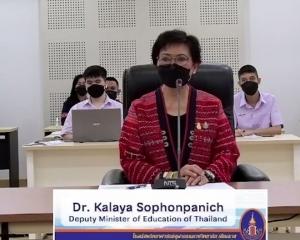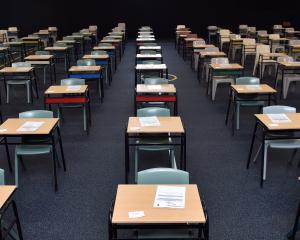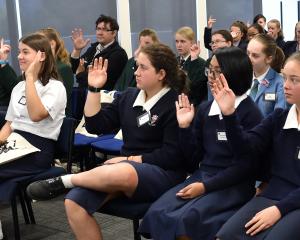The recipient of the Ricoh Otago Primary Principals Association Prestigious Award, Mrs Brooks recently returned from a two-week visit to Adelaide, South Australia, studying restorative processes at eight primary schools.
"The trip was amazing and it's clarified my thinking, especially now that I've seen restorative processes in such a variety of schools and seen how well it works," she said.
At the heart of the process was a belief that the people most able to deal with an incident of harm were those who had caused the harm or had the harm done to them.
Trained facilitators oversee the process and bring together those involved.
Although the process could be time-consuming, it set children up with skills for life, she said.
"If you use punitive measures to deal with conflict, there's no learning.
"The wrong-doer is punished but they don't always understand the impact the actions have had on another child or other children.
"Restorative processes teach them how to deal with a situation and accept the consequences.
"It's teaching children that we're not going to manage your behaviour, you're going to take responsibility for it."
Cromwell Primary had used the process for the past two years and it worked well, she said.
"I understand that some people might think this is a soft option, but when you get involved in the process, and see the children use it, the children are actually far harder on themselves than we would ever be."
Mrs Brooks spent her time in Australia "shadowing" the co-ordinator for the centre of restorative justice in Adelaide, Debbie Laycock.
The centre was a non-profit organisation and worked with schools and the Corrections Department.
She was able to see first-hand how the process had changed the life of a 17-year-old who was in the Adelaide Youth Detention Centre after committing armed robberies.
The Australian schools all had a resident counsellor who was employed part-time or full-time, so all children had ready access to a counsellor.
"One full-time counsellor made sure she had free time after morning tea and lunch to deal with any playground conflicts, so the issues could be resolved instantly."
Mrs Brooks hoped to use her skills to become a facilitator and teach others about the process "It was a privilege to receive this award so I want to give something back to my profession."











